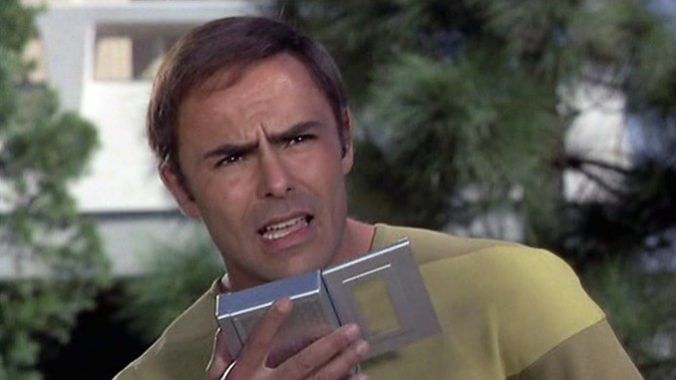After Star Trek, Gene Roddenberry Battled Second-Wave Feminism on Planet Earth

From 1969 to 1975, ABC put out weekly films. They functioned as TV pilots, testing grounds for up-and-coming filmmakers, and places for new and old stars to shine. Every month, Chloe Walker revisits one of these movies. This is Movie of the Week (of the Month).
How do you follow a TV show that changed the course of a whole genre? Well, if you’re Gene Roddenberry, and that TV show is Star Trek, the answer is: With difficulty.
After The Original Series ended its three-season run in 1969, Roddenberry tried to distance himself from genre typecasting altogether by writing the screenplay to the sleazy 1971 Rock Hudson vehicle, Pretty Maids All in A Row. It was tepidly received, and rightfully so.
It didn’t take long for sci-fi to call him back. In 1973, he wrote and produced Genesis II, a pilot movie for CBS about 20th century scientist Dylan Hunt (Alex Cord), who wakes up from suspended animation to find himself in a “future primitive society.” Nobody was buying, but it wouldn’t be the last we saw of Hunt.
Next up was 1974’s The Questor Tapes, another pilot movie and another work of science fiction, about an android’s search for the man who created him. Although this one was actually taken to series, creative differences between Roddenberry and NBC led to the project being abandoned before any episodes were produced.
Still, Roddenberry was nothing if not persistent. He took another shot just months after The Questor Tapes, repurposing many elements from Genesis II to create ABC Movie of the Week Planet Earth.
Dylan Hunt (John Saxon) leads a group from the interplanetary peace force PAX to locate the only doctor capable of saving one of their critically injured team. The problem: This doctor was last seen on a planet ruled by The Confederacy of Ruth—a matriarchy who enslaves their men (amusingly referred to as “dinks”) and drugs them to keep them under its command. Dylan decides the best course of action is for him to go undercover as the prisoner of teammate Harper-Smythe (Janet Margolin). They put that plan into motion, but it isn’t long before events start spiraling out of control.
There’s a charming shamelessness to the way Planet Earth so obviously sings from the hymn book of Roddenberry’s most famous creation. Between the precise mustard tones of the team’s uniform, the Captain’s Log narration, and the bombastic opening episode spiel, it often seems more like a rough draft of Star Trek than a follow-up.
-

-

-

-

-

-

-

-

-

-

-

-

-

-

-

-

-

-

-

-

-

-

-

-

-

-

-

-

-

-

-

-

-

-

-

-

-

-

-

-








































